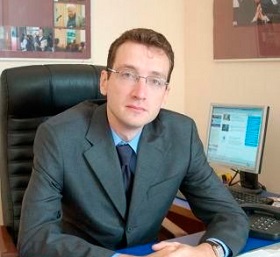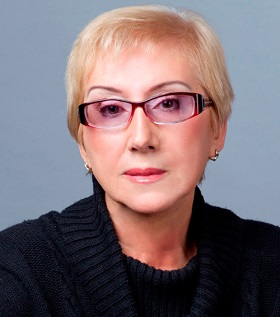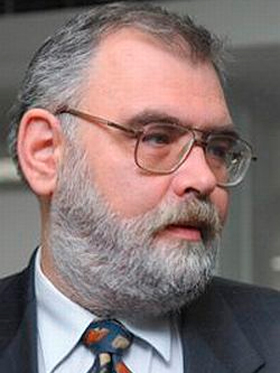RIAC Experts Analyze Scenarios for the Ongoing Crisis in Ukraine
(no votes) |
(0 votes) |
Interview
RIAC experts - Alexander Tevdoi-Burmuli (MGIMO-University), Sergey Utkin (Russia Academy of Sciences) and Nikolay Kaveshnikov (Institute of Europe, RAS) - analyze scenarios for the ongoing crisis in Ukraine.
Interview
RIAC experts - Alexander Tevdoi-Burmuli (MGIMO-University), Sergey Utkin (Russia Academy of Sciences) and Nikolay Kaveshnikov (Institute of Europe, RAS) - analyze scenarios for the ongoing crisis in Ukraine.
Alexander Gushchin, Associate Professor, Department of Post-Soviet Countries, Russian State University for the Humanities.
I want to offer a few thoughts on the causes of the crisis first. No matter how much you blame the opposition for extremism and, true, there are quite a few extremists among the opposition members, most of the blame for the crisis should be put at the authorities’ doors: they had tried to make sure that the Donetsk clan and the “family” would have control over important business assets and key administrative positions whilst ignoring the polyarchic traditions and blatantly undermining the balance of power. The protests also became more radical because of the authorities’ inconsistency in foreign policies: what they did was not balancing, it was outright bargaining. But politics, be it at the national or European level, is not like bargaining in a bazaar, and this inconsistency has only whipped up the protests. In addition, now that Yulia Timoshenko is serving her prison sentence, the authorities thought the opposition would be incapable of organising itself, and this, too, proved to be a mistake.
Now, when the government has lost control over nearly half of the country, it will obviously have to make concessions. I would think that the opposition will demand that Viktor Yanukovych, in exchange for certain guarantees, should become an ornamental president till next election. So far, offers of compromise by the authorities have been a sham because, in the current political system, the office of the prime minister is totally controlled by the president. I do not expect the opposition to give up on their demands to hold an early election. In the event that Yanukovych should resort to force, it would have negative implications for Ukraine. The issue would not be resolved, while the peace enforcement would be but temporary, and the population in western Ukraine and the majority of residents in the capital city would not change their minds. They would continue to hate the incumbent powers, while the schism in the Ukrainian society will only grow deeper.
A breakup of the country is the worst case scenario for Ukraine, Europe and Russia. Some observers allege that Russia may benefit from Ukraine’s breakup, but one needs to remember that, should it happen, Moscow would gain yet another hostile neighbour which will be always laying claims to the eastern territories. Western Ukraine would then be fully under the control of the European Union, and most likely, controlled by Poland. Although, given the roles of the external players, and in the absence of charismatic leaders either in the east or west of the country, Ukraine is unlikely to break up, there is no easy way out of the crisis. It is more likely that the government will gradually cede its powers.
At the moment, Viktor Yanukovych has been left with practically no chance of being re-elected at the next presidential election, since he has discredited himself both in the west and in the east of the country. The authorities had pushed aside European integration, which for many Ukrainians was a consolidating factor, and offered, in its place, “stability”: a vague notion which, in case of Ukraine, is based on Moscow’s backup. This is the “stability” that is rejected a priori by the majority of the population, ever more radically so than the ‘pro-Russian’ segment of the society rejects European integration.
The opposition at the moment will do better by not delaying the settlement of the crisis until the end of the Sochi Olympic Games. Anyway, it is obvious that Ukraine has exhausted its development resource based on old political templates. The issue at the moment is to nominate new political leaders in the east and south-east of the country, and formulate a new national agenda for the whole of the country.
Ella Zadorozhnyuk, PhD in History, Senior Research Fellow at the Section of modern history and sociopolitical issues of Central and Southeast European countries, Institute of Slavic Studies of the Russian Academy of Sciences.
It is imperative to make an in-depth analysis of the Ukrainian regional setup, which I tried to do back in 1997 (see: Zadorozhnyuk E.G. NATO-Ukraine special relationship and the challenge of Ukrainian inter-regional differences // NATO: Facts and Commentaries. Moscow, 1997. No 3 (in Russian)). That paper offered the following imaginable map of the regions (in terms of proportions of urban and rural population; numbers of Russian and Ukrainian-speaking residents; affiliation with the church, given the domination of the Russian Orthodox Church of the Moscow Patriarchy): the West, consisting of 7 provinces, with the border running along Zhitomir and Khmelnitsky provinces; Centre (consisting, apart from the latter two, of the Kiev, Vinnitsa, Cherkassy, Kirovograd, Poltava, Sumy and Chernigov provinces) and South-East (the rest of the country). The conclusion was that the Centre tended to vacillate between the East and the West. These ideas were developed further in the later book (ed. D.Ye. Furman and E.G. Zadorozhnyuk, Ukraine and Russia: societies and governments. Moscow, 1997), which is still very relevant today. The map can be viewed now daily in the news, and the boundaries between the regions are quite distinct.
Now, in the Centre of Ukraine (and even in the centre of the Centre: Kiev, Cherkassy and Kirovograd provinces), this oscillation is strong and westward only. But it is this part of the country that will create the momentum to turn to the East, thus restoring the sovereign identity of the country. This momentum will be (or is being) created at the level of the stabilizing regional entities, concerned about the unity of the state, both in the West and in the East of the country. There is no alternative to it, but it would be wise to avoid relying on the mass media to promote the inevitable “turning back to Moscow” or even less so making any calls to facilitated stabilization: what is more preferable is hard analysis. What is also needed is support for “grassroots” actions, since, economically, without the “deep-rooted” ties with the Russian economy, it may all end up in a collapse of the national economy and political catastrophe.
Alexey Kuzmin, Leading expert at the International Institute of Humanitarian and Political Studies, Professor, Sholokhov Moscow State University for Humanities
The situation in Ukraine appears to be following the worst case scenario. Importantly, not only cognitive and social conditions leading to the “Euromaidan” had been conceived inside the Yanukovych regime by one of the most influential groups in the Ukrainian government; the same group was responsible for the initial organizational efforts. But the mass protest was mobilized by another group, internal to the regime, by its incapacity either to be necessarily tough and close down the issue, or refrain from the use of force. It was perceived, automatically, as demonstration of weakness by the regime, and as a result, it was exposed to more strength tests. What the opposition did was just join the Maidan, since the latter did not allow it to ‘lead’ or ‘organize’ the protests.
Moreover, while the Maidan 2004 was a nexus of meanings, the Maidan 2014 is as poor in ideas as were meetings in Bolotnaya: absolutely no one is offering any image of the future.
The same kind of scenario appeared likely to us almost ten years ago, but it was so undesirable for any of the actors that, commenting on Ukraine’s political macrosociology, we argued then that the ruling elite would have enough self-preservation instinct not to provoke such a scenario.
But it looks now that this scenario of total delegitimisation of the state (which is already in the “bad legitimacy” zone, according to V.M. Sergeyev) is getting more probable.
The government under Sergey Arbuzov will only be worse than under Mykola Azarov, while there have been no volunteers in the opposition, apart from Yulia Timoshenko, to head the cabinet.
Hopes for early election to re-launch the state by giving it the necessary legitimacy have no basis in any positive knowledge, and appear to be just idle speculation.
This does not imply the start of a civil war: for a civil war, legitimate hierarchies are needed even more than for peace-time government functioning. In addition, the fairly high level of self-organization (e.g., there were no marauding crowds, and museum collections were protected when the International Convention Centre was occupied) seems to suggest, rather, the deliberate avoidance of an armed conflict by all parties.
A territorial breakup is even less likely: neither of the parties is capable of winning over the Centre of Ukraine, while the “nationalist North-East” (Poltava and even more so – Sumy) makes any territorial “parcelling” even less probable. While, as Pavlovsky put it, “Ukrainians do not have much heart for the government”, they are even less inclined towards mass infatuation with high transaction costs involved in a “hot conflict” like in Moscow in 1993 or in Kirgizstan.
In other words, what awaits us is the disintegration of the state, although not in terms of geography but in terms of values. The longer it lasts, the more likely such a scenario is. Although the simulacrum of the state may stay on, it will not be in a position to collect taxes or resist an upsurge of violence.
As for the outside intervention, the probability is extremely limited, at least in the medium-term. Instead, one needs to start planning special measures to protect critical infrastructure, similar to how it is being done in Iraq.
(no votes) |
(0 votes) |






